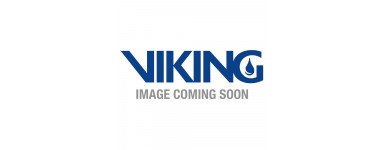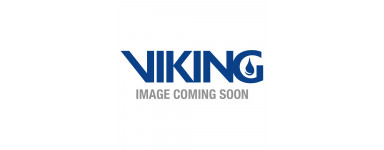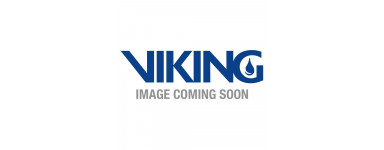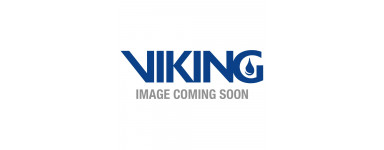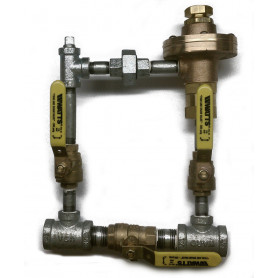Dry Pipe Systems
- Fire Sprinklers
- Standard Coverage
- Commercial Extended Coverage
- Storage Sprinklers
- Residential Sprinklers
- Dry Barrel Sprinklers
- Special Sprinklers
- Sprinkler Accessories
- Spray Nozzles / Window Protection
- Wet Pipe Systems
- Dry Pipe Systems
- Deluge Systems
- Preaction Systems
- Model G Preaction Systems
- Single Interlocked – Pneumatic Release
- Single Interlocked – Electric Release
- Double Interlocked – Pneumatic/Pneumatic Release
- Double Interlocked – Electric/Pneumatic Release
- Double Interlocked – Electric/Pneu-lectric Release
- Components and Accessories (general)
- Accessories (Pneumatic Release)
- Accessories (Hydraulic Release)
- Accessories (Electric Release)
- Alarm Devices
- Special Valves and Trim
- Valves and Systems
- Foam Systems and Accessories
- Foam Systems
- Concentrate Control Valves and Trim
- Valve Trim for Premixed Foam Systems
- Release Trim Packages
- Foam Concentrates
- Accessories, Foam Concentrates
- Proportioning Devices
- Discharge Devices
- Bladder Tanks
- Double Wall (SAFE) Atmospheric Storage Tanks
- Single Wall Atmospheric Storage Tanks
- Atmospheric Storage Tank Optional Equipment
- FoamPak Foam Pump Skid, 60Hz, Single and Dual
- FoamPak Foam Pump Skid, 50Hz, Single and Dual
- FoamPak Accessories
- Miscellaneous
- Portable Fire Equipment
- Fire Detection Systems
- Addressable Fire Alarm Systems
- Vigilant MX1 Addressable Panels
- MX1 Addressable Fire Panels
- AS1668 Controls and Gas Controls for MX1
- Addressable Detection & 850EMTK Programmer
- Addressable Modules and Field Devices
- Graphic Monitoring Software - XLG Client Server
- Vigilant Empty Cabinets & Battery Boxes
- IP Interface Networking
- MX Hazardous Detectors / Devices
- Documentation and Manuals
- Vigilant MX4428 & F4000 Addressable Systems
- ASE Parts
- Vigilant MX1 Addressable Panels
- Emergency Warning Systems
- QE20 EWCIE and QE90 EWIS
- Occupant Warning Systems
- Grade 2 and 3 EWS T-Gen2 AS4428.16 Approved
- Grade 2 and 3 EWS T-Gen2 AS4428.16 Approved
- Older Style OWS Amplifiers
- Evacuation Speakers
- WIP Phones & WIP Cabinets
- VOX Speech Intelligibility Test Kits
- Miscellaneous Tools & Items
- Conventional Fire Alarm Systems
- Maintenance Testing Equipment
- Flame Detection
- Ancillaries
- Cabinets
- Speaker Testing Equipment
- Miscellaneous Spare Parts
- Coltraco - Ultrasonic & Safety Instrumentation
- Photoelectric Smoke Alarms Stand Alone – Battery Powered
- OSID Emitters & Imagers
- Anti-Tamper Device
- FBA
- Gas Panel Signage
- Looms and Ribbon Cables
- Power Supplies
- Addressable Fire Alarm Systems
- VESDA ASD Detectors
- VESDA & FAAST FLEX Detectors
- VESDA Life Expectancy 2015
- Xtralis AS1851.2012 Maintenance
- VESDA LCD Programmer & High Level Interfaces
- VESDA-E Backward Compatibility Table - Firmware Versions
- Filters & Spare Parts
- VESDA Software
- Pipe and Fittings
- Automatic Air Purging System
- 19" Rackmount Configurations
- Gas Detection for VESDA
- VESDA Remote Displays
- Power Supplies
- VSM4 Configuration & Monitoring Software
- VESDA Documentation & Manuals
- VESDA Life Expectancy 2015
- Xtralis AS1851.2012 Maintenance
- VESDA-E Backward Compatibility Table – Firmware Versions
- VESDA Product Manuals & Data Sheets
- VESDA Technical Tips
- VESDA Maintenance & Troubleshooting
- VESDA Design & Commissioning
- VESDA Industry Documents
- VESDA Aspirated Smoke Detection for Impulse (Jet) Fans in Carparks
- VESDA Refrigerated Cold Storage Facilities - Design Guide & Information
- VESDA Case Studies
- VESDA Movies
- Smoke Bombs & Smoke Pens
- FAAST FLEX Documentation & Manuals
- Suppression Systems
- Hangers & Fasteners
- Exit & Emergency Lighting
- Foam Products
- Electrical Products
- Steel Pipe & Fittings
- Alarm Devices & Monitoring
- Signage & Blazons
- Tools & Accessories
There are 2 products.
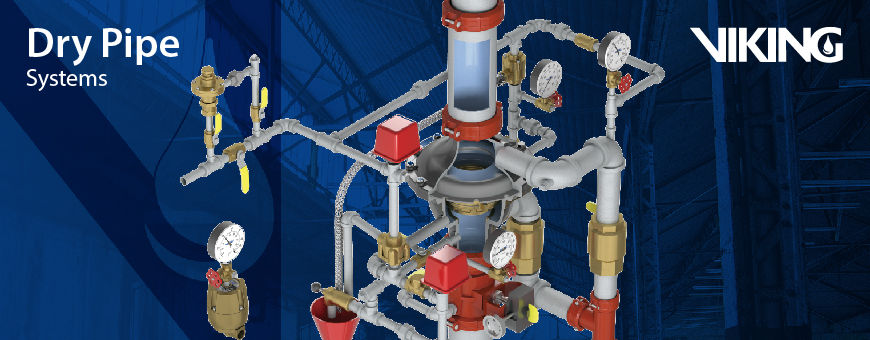
Wet, Dry, Deluge & Preaction
There are 4 common types of sprinkler systems, Wet, Dry, Deluge & Pre-Action.
WET
Wet systems are the most common as they are the simplest of the 4 and usually require the least maintenance.
DRY
Dry systems designed for environments with freezing temperatures like walk-in refrigerators, loading docks, and warehouses. The piping does not contain any water, it is charged with air or nitrogen under pressure.
DELUGE
Deluge systems are designed for when large quantities of water are needed quickly to control a fast-developing fire.
PRE-ACTION
Pre-Action systems are hybrid dry/wet fire protection systems. They are similar to a deluge system except the sprinklers are closed. Specifically designed to protect water sensitive facilities such as libraries, data centres and museums, etc.
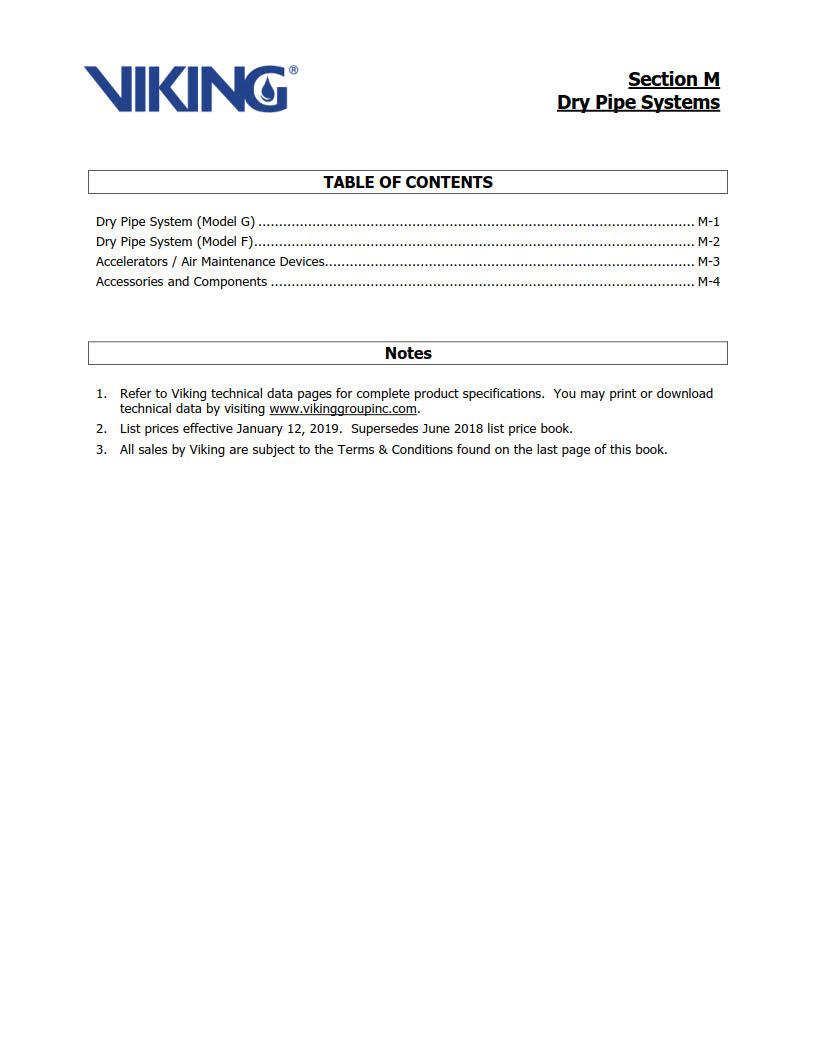
Subcategories
Dry Pipe System (Model G)
Dry System G Series Dry Valve Riser Assembly

When a sprinkler (1) opens, loss of air pressure in the system allows the differential valve (2) to open and relieve the priming pressure from the internal prime chamber assembly (3), opening the valve, and filling the system with water. To speed the opening of the G Series dry valve in large systems, a model E-1 accelerator (4) can be added. Water flow from the intermediate chamber of the dry valve can cause a pressure switch (5) to activate an electric alarm and/or operate a mechanical water motor alarm. When the valve operates, pressure opens the pressure operated relief valve (PORV) (6) continuously venting the water supply to the priming chamber, ensuring the dry valve remains in the open position.

Dry Pipe System (Model F)
Dry System ModelF-1 Dry Pipe Valve

When a sprinkler (1) opens, loss of air pressure in the system allows the dry valve clapper (2) to open, filling the system with water. To speed the opening of the dry valve in large systems, an accelerator (3) can be added. An integral anti-flood device protects against accelerator flooding. Water flow from the intermediate chamber of the dry valve can cause a pressure switch (4) to activate an electric alarm and/or operate a mechanical water motor alarm.

Accelerators / Air Maintenance Devices

Accessories and Components

